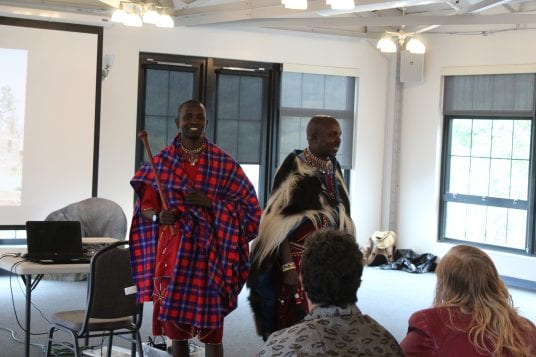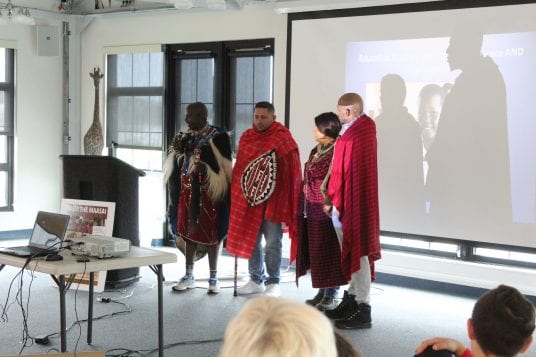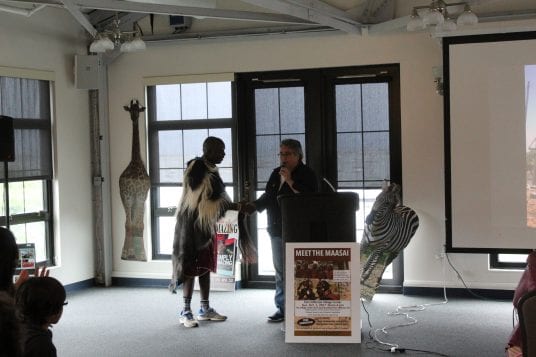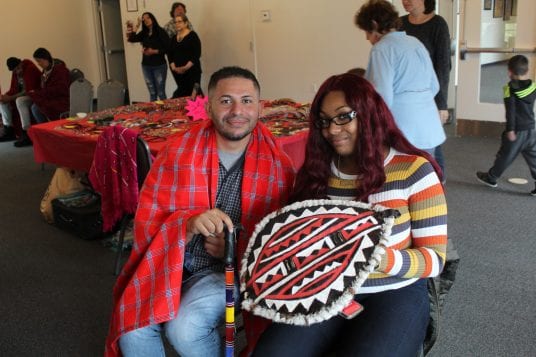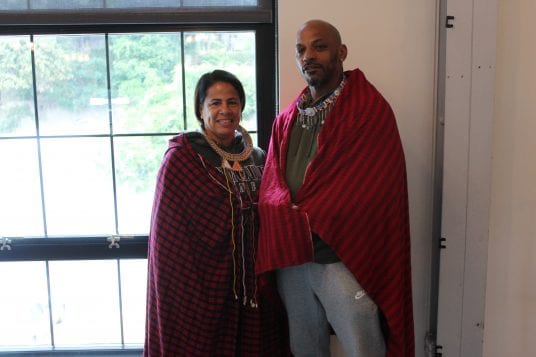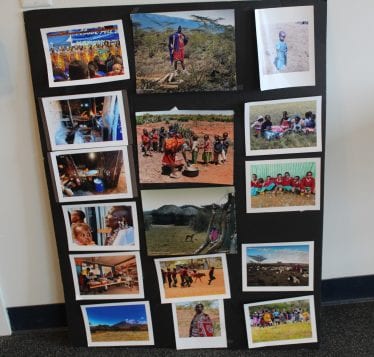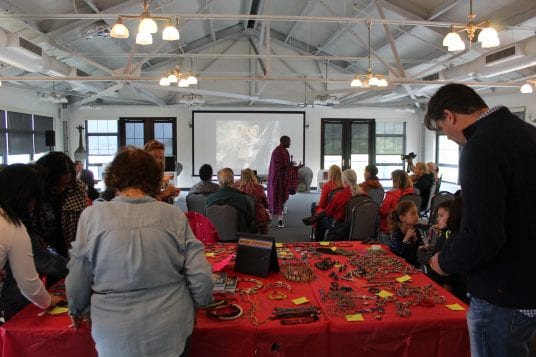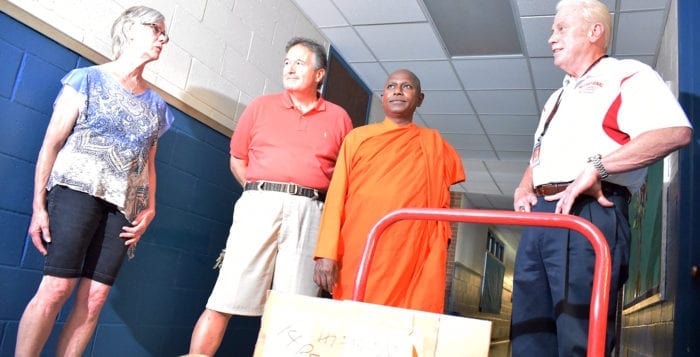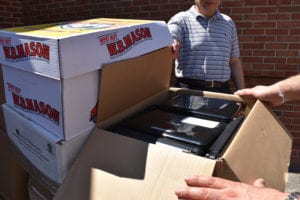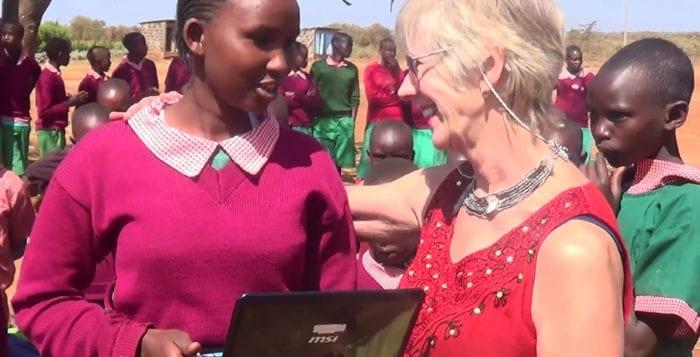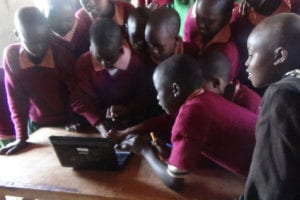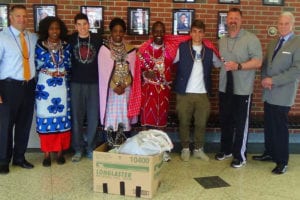Chief Joseph Ole Tipanko and members of the Kenyan Maasai tribe returned to their “home away from home” Oct. 6 when they led educational presentations to a room full of local residents at the Port Jefferson Village Center.
Patrons learned about the history, customs and lifestyle of the tribe who reside in Kenya and Tanzania.
“They are the oldest indengious African tribe still functioning in Africa today, much in the way they did from the beginning of time,” said Virginia Armstrong, a local resident who partners with the Maasai Good Salvage Outreach Organization.
The presentation was organized by Armstrong, a former Mount Sinai educator, and the Maasai Good Salvage Outreach Organization, which builds schools for needy and vulnerable children.
Over the years, Armstrong and the organization have raised donations to help the Maasai communities. In July 2018, the educator and the Mount Sinai School District helped shipped 140 small laptop computers to children in both Sri Lanka and to the Maasai tribe. In 2015, they donated clothing and sneakers as part of an Athletes Helping Athletes clothing drive. They also helped build a school for the villages wired with electricity.
Chief Joseph spoke about life in his tribe.
“The Maasai are tranquil, nomadic and an indigenous group of people,” he said. “We have still kept of our lifestyle and traditions despite many changes that are happening in the communities.”
Joseph said since he has become the chief of the tribe, he has worked to move away from old customs of arranged and early child marriages and female genital cutting. With help from the outreach organization and others they have been able to give young girls an alternative by providing them with an education.
“We have been campaigning in our villages to end [the practices],” he said.
Last year, 11 at-risk girls graduated from the tribe’s local high school. Some have qualified to go to university, while others will join technical colleges. Currently, 12 girls are being supported in high school and eight are being sponsored in elementary school. Hot lunches, school uniforms and books are also provided for 28 preschool kids.
Other highlights of the presentations were Chief Joseph and John Kilenyi Ole Parsitau performing native songs and dances. The duo also let three attendees try on traditional Maasai robes.
Margot Garant, Port Jeff mayor, presented Chief Joseph and members of the Maasai with official village pins.
Chief and I met six or seven years ago when he came to the village and it was love at first site,” she said. “We adopted the Maasai tribe as our sister village and we are committed to finishing the girls dormitory and a pump for your well.”
On hand, the tribe had articles of jewelry, crafts and clothing for attendees to buy. All funds collected will go toward the children’s education and water projects in the villages. Patrons were encouraged to sponsor a Maasai child’s education.
To find out more about the Maasai tribe, visit www.magsaoutreach.org. To find out more about the tribe’s ties to Suffolk County or to donate, visit www.leavingfootprints.org.

